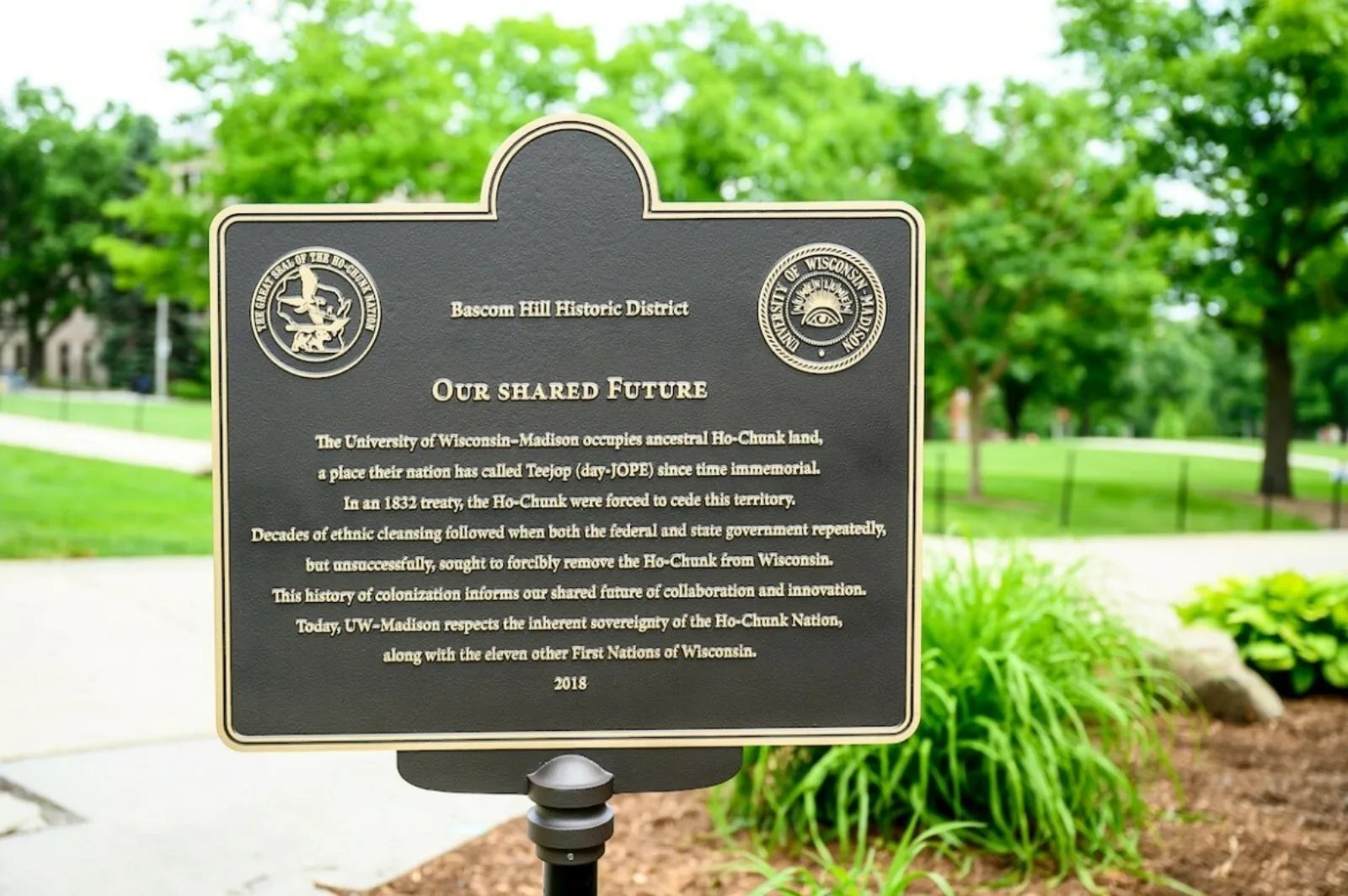The University of Wisconsin campus has been described as the most archeologically rich campus in the world. What is less recognized and publicly shared, is that the University of Wisconsin rests atop a significant Ho-Chunk landscape.
In this interdisciplinary workshop, Native American and Indigenous Studies methodologies are centered to reveal Indigenous presence amidst the many and complex ways contemporary places are rendered settler spaces on occupied Indigenous landscapes. Using the University of Wisconsin as a guiding case study, participants will utilize place-based learning to explore how Indigenous histories are embedded on the land, despite centuries of dispossession.
In addition to the lake-side college campus, participants will be guided by Dr. Keeler and Dr. Suarez to think critically about other landscapes across North America, both urban and suburban, and the ways Indigenous placemaking takes shape all around us daily. Participants will engage with such themes and topics as memory, erasure, Indigenous infrastructure, suburban Indians, place-based land acknowledgements, identity and belonging, “firsting and lasting,” and resurgence and decolonization efforts.
Workshop Participants
Gaby Baez, University of Oklahoma
Anna Christensen, Harvard University
Nicolas Fonseca, Northwestern University
Jayson Gislason, University of Manitoba
Lauren E. Toho-Murrow Haupt, University of New Mexico
Susan Hou, University of Washington
Jack Hynick, University of Wisconsin-Madison
Sarah Lavoy-Brunette, Cornell University
Brigitte McFarland, University of Chicago
Madeline Nash, Michigan State University
Mariah Ribeiro, University of Washington
Vijay Shah, University of Illinois Urbana-Champaign
Will Shine, University of Chicago
Lindsey Willow Smith, University of Minnesota
Makamae Sniffen, University of Wisconsin-Madison
Christina Thomas, University of California-Davis
Savannah Jo Waters, Oklahoma State University
Connor Young, University of Nevada, Las Vegas
